
How to Create a Relapse Prevention Plan That Works
Understanding the Foundations of Relapse Prevention
Relapse prevention is a critical component of sustained recovery from substance use disorders. It involves a personalized, comprehensive approach to identifying risks, developing coping strategies, and establishing a support system tailored to individual needs. This article explores practical steps, essential components, and evidence-based models for creating an effective relapse prevention plan that serves as a lifelong tool for maintaining sobriety.
Identifying Triggers and Warning Signs Effectively
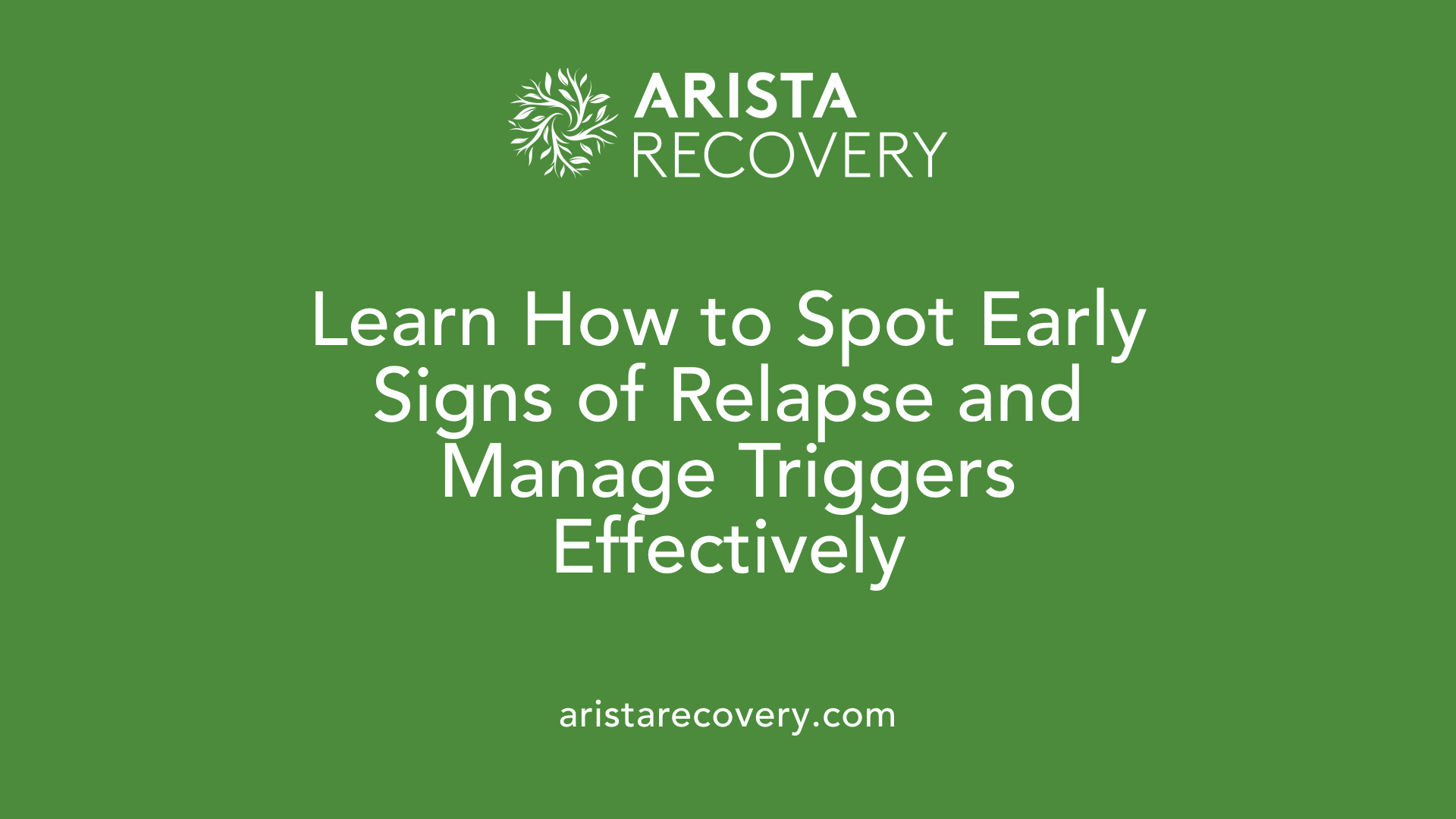
How can I identify relapse triggers and warning signs?
Recognizing the early signals of potential relapse is a vital part of maintaining long-term recovery. It begins with paying close attention to emotional and mental shifts that may indicate increased vulnerability.
Common relapse triggers include stressful situations, environmental cues, and social settings that remind you of past substance use. For example, high-pressure work environments or social gatherings where drug or alcohol use was prevalent can serve as potent triggers. Recognizing these helps you prepare and implement strategies to cope.
Early warning signs often manifest as changes in behavior and mood. Mood swings, irritability, and feelings of depression or anxiety are typical indicators. Social withdrawal, neglecting recovery routines, or fantasizing about substance use are also red flags. For instance, romanticizing the use or thinking about past drug experiences can make relapse more likely.
Developing awareness of these signs allows you to act proactively. Techniques such as journaling your feelings, practicing mindfulness, or reviewing your relapse prevention plan can enhance your ability to detect these early signs. Seeking support from a sponsor, therapist, or recovery group plays a crucial role in recognizing and responding to these indicators.
Creating a personalized plan tailored to your specific triggers and warning signs can significantly reduce the risk of full relapse. Regular check-ins with your support network ensure you stay aware of your emotional state and maintain your commitment to sobriety.
In conclusion, the key to effective relapse prevention lies in understanding your personal triggers and warning signs. By paying attention to changes in mood, behavior, and environmental cues, and by actively engaging in support networks and coping strategies, you can better navigate the recovery journey and minimize setbacks.
Strategic Development of a Personalized Relapse Prevention Plan
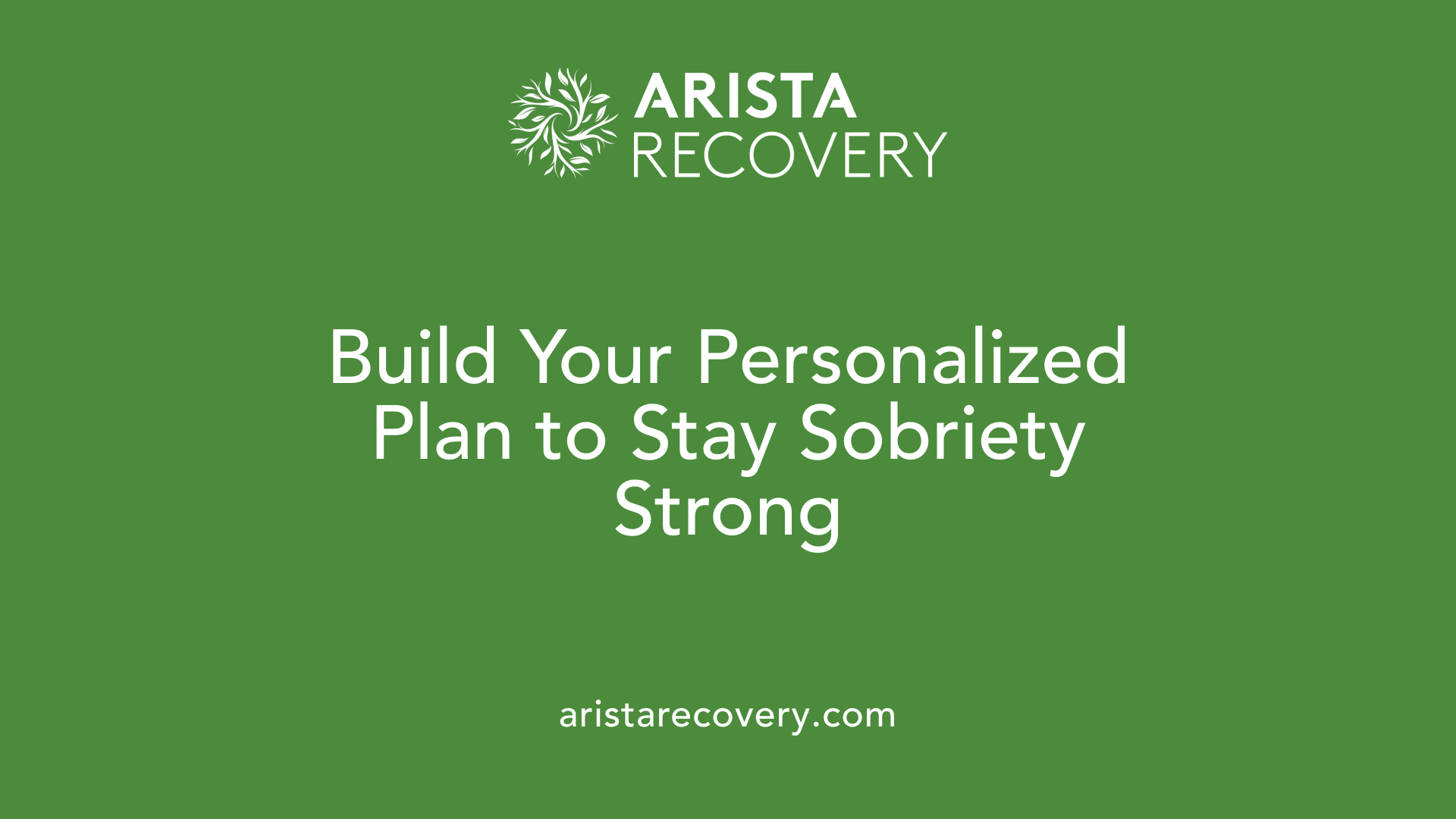
How can I develop an effective relapse prevention plan?
Creating a solid relapse prevention plan involves a thoughtful process of understanding your personal vulnerabilities and preparing strategies to maintain sobriety over time. The foundation of an effective plan starts with a comprehensive assessment of individual risks and triggers. This assessment includes identifying the situational, emotional, or mental cues that have historically led to substance use. Common triggers might encompass stressful events, social pressures, certain places, or feelings like boredom or loneliness.
Once triggers are identified, the next step is to set realistic and attainable recovery goals. These should align with your personal values and long-term aspirations, such as restoring relationships, staying employed, or improving mental health. Defining clear goals helps maintain motivation and provides direction.
A critical component of the plan is maintaining a written document that details coping strategies, support contacts, and specific action steps to take during high-risk situations or when warning signs emerge. Effective coping mechanisms include calling a sponsor or trusted support person, engaging in distraction activities like journaling, exercise, or hobbies, and practicing mindfulness or relaxation techniques like yoga or deep breathing. Regularly reviewing and updating this written plan ensures it remains relevant and effective.
Supporting your plan is ongoing collaboration with healthcare professionals, such as therapists, physicians, or addiction specialists. These professionals can help tailor your plan to include appropriate therapies or medications, addressing co-occurring mental health conditions or physical health concerns.
In addition, staying connected with support networks—including support groups like Alcoholics Anonymous, Narcotics Anonymous, or peer-led recovery communities—is vital. These groups offer accountability, shared experiences, and encouragement. Sharing your plan with trusted individuals can enhance its effectiveness, creating a circle of support that can intervene early during signs of relapse.
Recognizing early warning signs—such as mood swings, irritability, or cravings—is crucial. Having immediate intervention tactics like delaying the decision to use, practicing relaxation exercises, or reaching out to support contacts can intercept relapse at its onset.
Lastly, lifestyle modifications play a significant role in relapse prevention. Regular physical activity, healthy eating, adequate sleep, and stress management activities collectively fortify your resilience. Honest communication about feelings and challenges with your support network keeps you connected and aware.
In summary, an effective relapse prevention plan is personalized, dynamic, and incorporates a variety of strategies suited to your specific needs. Developing this plan early, and revising it as needed, empowers you to navigate the recovery journey confidently and sustainably.
Key Strategies and Components for an Effective Plan
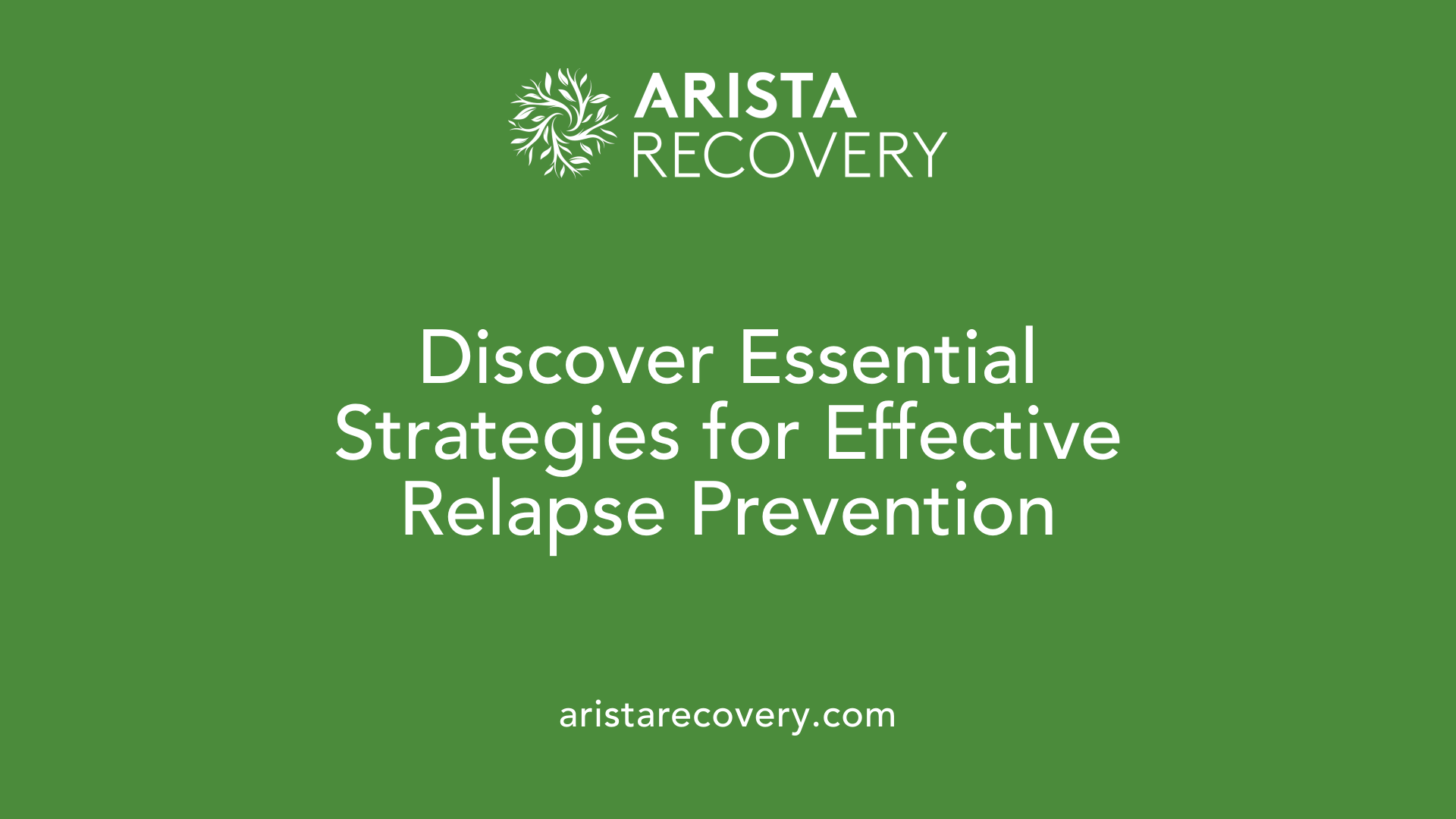
How do you identify risk factors and high-risk situations?
A crucial part of creating a relapse prevention plan is recognizing the specific triggers that pose a risk for relapse. These triggers include people, places, or activities associated with past substance use, as well as stress, emotional lows, or anniversaries tied to previous usage. High-risk situations may also involve social gatherings where substances are present or environments that evoke cravings.
To effectively identify these risks, individuals are encouraged to reflect on their personal history and patterns of use. Using tools like worksheets, they can list potential hazards and early warning signs that might lead to relapse. Regular assessment with clinicians and support networks helps keep the plan current and responsive to changes.
Understanding these risks enables individuals to develop targeted coping strategies, such as avoiding certain environments or practicing mindfulness when they notice specific feelings or thoughts surfacing.
What coping strategies can support relapse prevention?
Coping strategies are vital tools to manage cravings and prevent relapse when risk factors are present. Techniques such as mindfulness exercises, including meditation and deep breathing, can help rewire the brain's response to stress and reduce the intensity of cravings.
Distraction methods—like engaging in physical activity, hobbies, or social activities—serve to shift focus away from the urge to use substances. Building a support network, including reaching out to sponsors, friends, or family, provides emotional backing during challenging moments.
Other practical approaches include maintaining a list of supportive contacts, writing down a personal response plan for cravings, and practicing relaxation exercises. Incorporating healthy lifestyle habits like regular exercise, balanced eating, and adequate sleep also bolster resilience.
How do lifestyle changes foster resilience?
Lifestyle modifications address the root impacts of addiction, such as damaged relationships, legal issues, or poor mental health. Positive changes such as establishing routines, engaging in fulfilling activities, and maintaining physical health contribute to a stable and supportive environment.
Creating new, healthy habits helps replace old triggers and provides a sense of purpose. For example, joining hobby groups, volunteering, or pursuing education can foster self-esteem and social connections.
Addressing emotional well-being through therapy, mindfulness, or stress management techniques further strengthens the individual’s ability to handle high-risk situations.
Why are support groups and community resources essential?
Support groups like Alcoholics Anonymous (AA) and Narcotics Anonymous (NA), along with community mental health services, provide ongoing social connection and accountability. These groups enable shared experiences, encouragement, and a sense of belonging, which are critical for sustained recovery.
Community resources also include healthcare providers, counselors, and crisis helplines such as the SAMHSA helpline. These resources offer professional guidance, emergency intervention, and additional tools for managing challenges.
Connecting with these networks ensures that individuals have continuous support, motivation, and access to interventions when needed. Their involvement in a relapse prevention plan enhances its effectiveness and provides reassurance that help is accessible at any stage of recovery.
Education and Models Informing Relapse Prevention
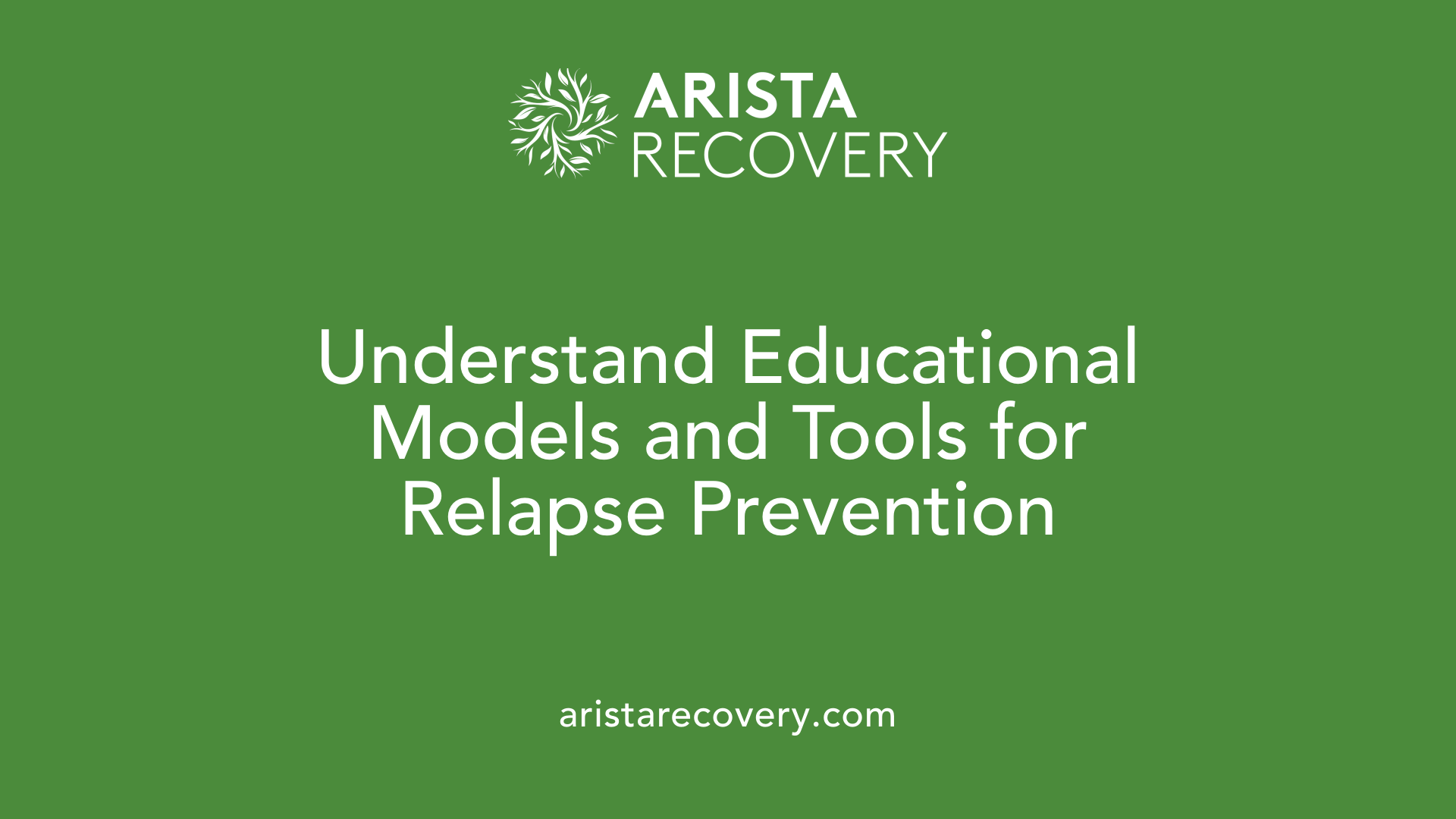 Relapse prevention relies heavily on structured models and educational tools that help individuals understand their recovery process and develop effective strategies. Notably, models like the Gorski-CENAPS and Marlatt’s focus on self-regulation, awareness of high-risk situations, and understanding the stages of relapse.
Relapse prevention relies heavily on structured models and educational tools that help individuals understand their recovery process and develop effective strategies. Notably, models like the Gorski-CENAPS and Marlatt’s focus on self-regulation, awareness of high-risk situations, and understanding the stages of relapse.
The Gorski-CENAPS Model emphasizes self-assessment and the importance of recognizing early warning signs of relapse. It encourages individuals to develop coping skills and manage emotional triggers before they escalate. This model pays close attention to the process of recovery, highlighting the need for ongoing self-monitoring and proactive intervention.
Similarly, Marlatt’s Model addresses the impact of high-risk situations, influenced by personal triggers, environments, and emotional states. It provides a framework for evaluating the effect of various influences and implementing strategies to avoid lapses turning into full relapse.
To support these approaches, numerous workbooks, worksheets, and templates are available. These resources guide individuals through creating personalized relapse prevention plans, which include identifying specific triggers, warning signs, and coping mechanisms. Many of these tools adopt practical formats like 'If-Then' charts, goal-setting exercises, and daily routines, making them adaptable and user-friendly.
Creating a plan becomes a dynamic process, with templates often serving as living documents that can be revised as an individual progresses in recovery. These structured frameworks foster self-awareness and accountability, empowering individuals to manage their triggers and respond effectively to high-risk situations.
Understanding relapse as a gradual process with emotional, mental, and physical stages allows for timely intervention. Educational models and predefined templates together equip individuals with the knowledge and tools needed to navigate the recovery journey and reduce the likelihood of relapse.
The Role of Healthcare Teams and Support Network in Long-Term Recovery
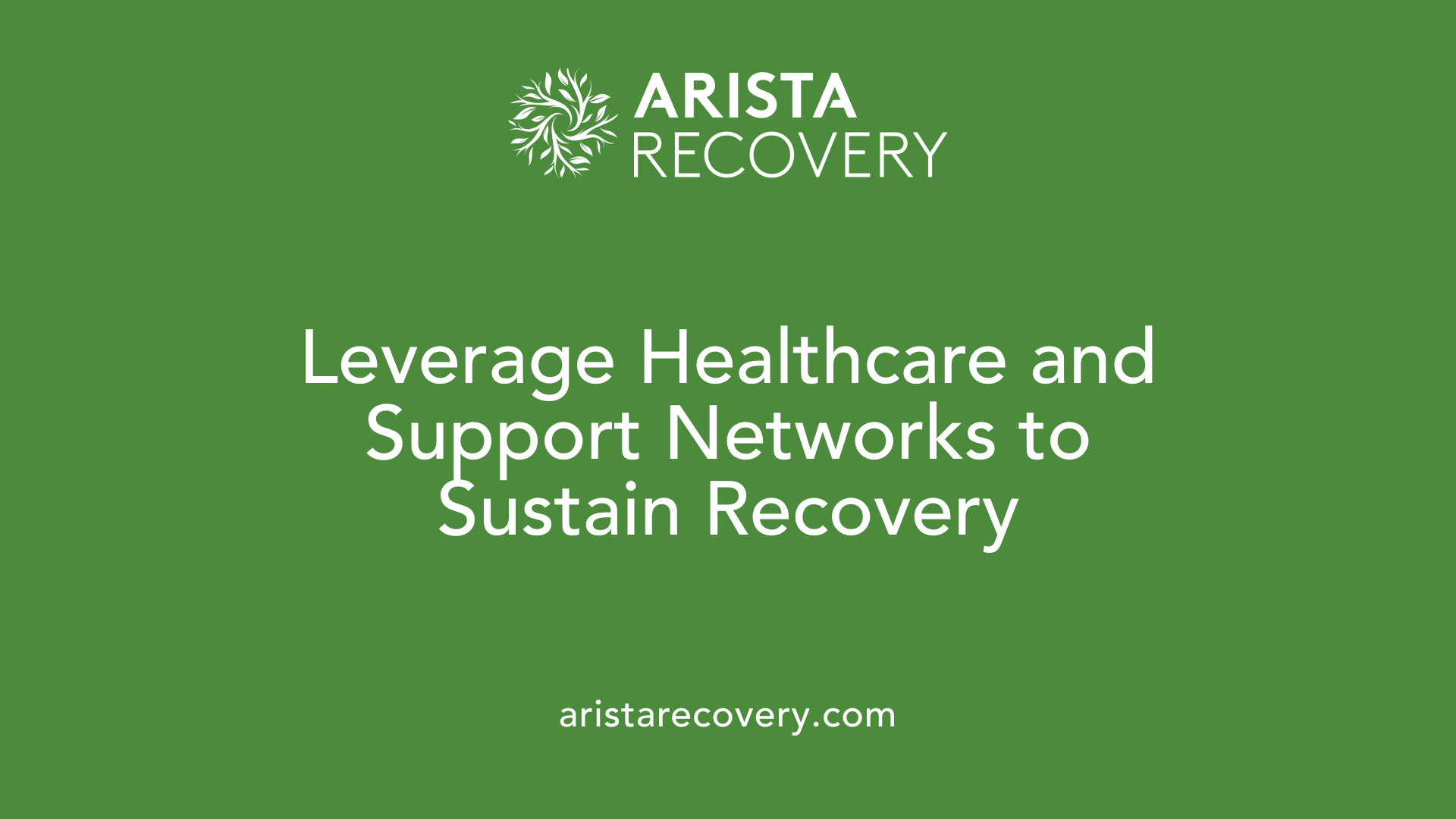
What is the role of healthcare teams in relapse prevention?
Healthcare teams are fundamental in supporting long-term recovery from substance use disorders. Their primary role involves early detection of risk factors that could lead to relapse. Through ongoing monitoring of treatment progress, they identify warning signs such as emotional distress, mental cravings, or behavioral changes that suggest potential setbacks.
These professionals employ comprehensive strategies, including counseling, medication management, and psycho-social interventions like mindfulness exercises or stress-reduction techniques. Such approaches help address both the mental health issues and addiction behaviors simultaneously, creating a cohesive treatment environment.
Interprofessional collaboration is essential, involving primary care providers, nurses, mental health specialists, and addiction professionals. This teamwork allows for personalized care that adapts to each individual’s evolving needs, circumstances, and challenges.
Nurses and other team members facilitate support groups and help develop tailored relapse prevention plans. They also connect clients with community resources—such as sober housing, employment programs, and peer support networks—that reinforce recovery efforts.
Effective relapse prevention relies heavily on ongoing communication and regular follow-up. Building a strong relationship with patients encourages honesty and engagement, which are vital for early intervention and sustaining sobriety over the long term.
Through these combined efforts, healthcare teams provide the structured support necessary for individuals to navigate the difficulties of recovery, mitigate risk factors, and maintain their commitment to a substance-free life.
Sustaining Sobriety Through Lifelong Commitment
Creating an effective relapse prevention plan is a dynamic process that requires ongoing effort, honesty, and adaptation. By thoroughly identifying triggers, developing tailored coping strategies, leveraging support systems, and working closely with healthcare professionals, individuals can significantly reduce their risk of relapse. Long-term recovery is supported by continuous self-monitoring, participation in support groups, and lifestyle changes that promote resilience. Remember, relapse is a common, yet preventable, part of the journey—equipped with a well-crafted plan, individuals can navigate challenges confidently and sustain their sobriety for life.
References
- How to Create a Successful Relapse Prevention Plan
- Relapse Prevention Plans - CSG Justice Center
- Addiction Relapse Prevention - StatPearls - NCBI Bookshelf
- [PDF] Relapse Prevention Plan
- Preventing Relapse - Hazelden Betty Ford Foundation
- How to Create a Relapse Prevention Plan
- How to Write a Bulletproof Relapse Prevention Plan - River Oaks
When mental health challenges and addiction intersect, it can feel isolating. At Arista, we offer compassionate, evidence-based, and trauma-informed care to help you heal, grow, and move forward.
You’re not alone in this.
When mental health challenges and addiction intersect, it can feel isolating. At Arista, we offer compassionate, evidence-based, and trauma-informed care to help you heal, grow, and move forward.
Support that moves with you.
You’ve taken a brave first step. At Arista Recovery, we’re here to help you continue with best-in-class care designed for long-term healing and support.
.webp)






